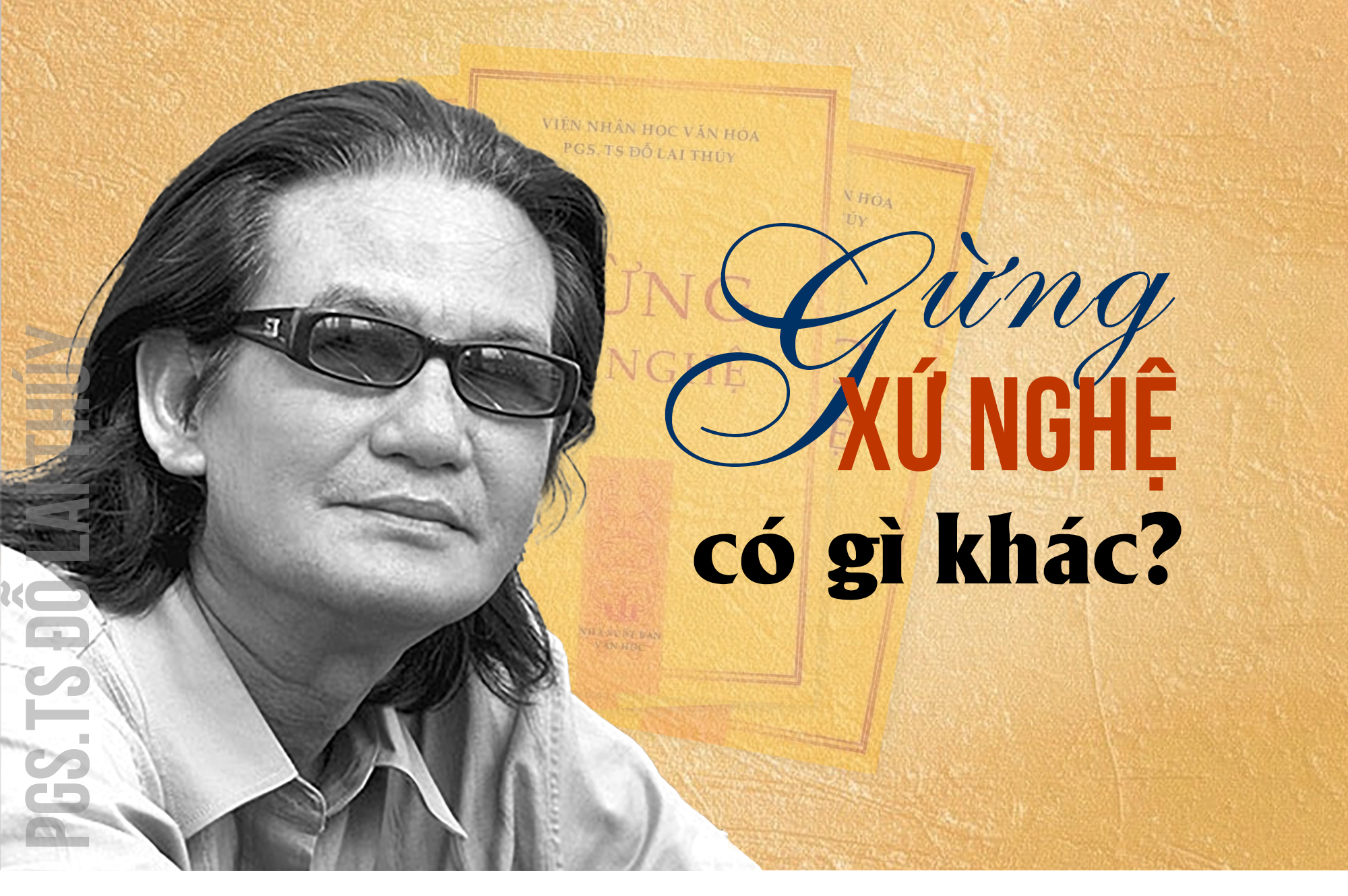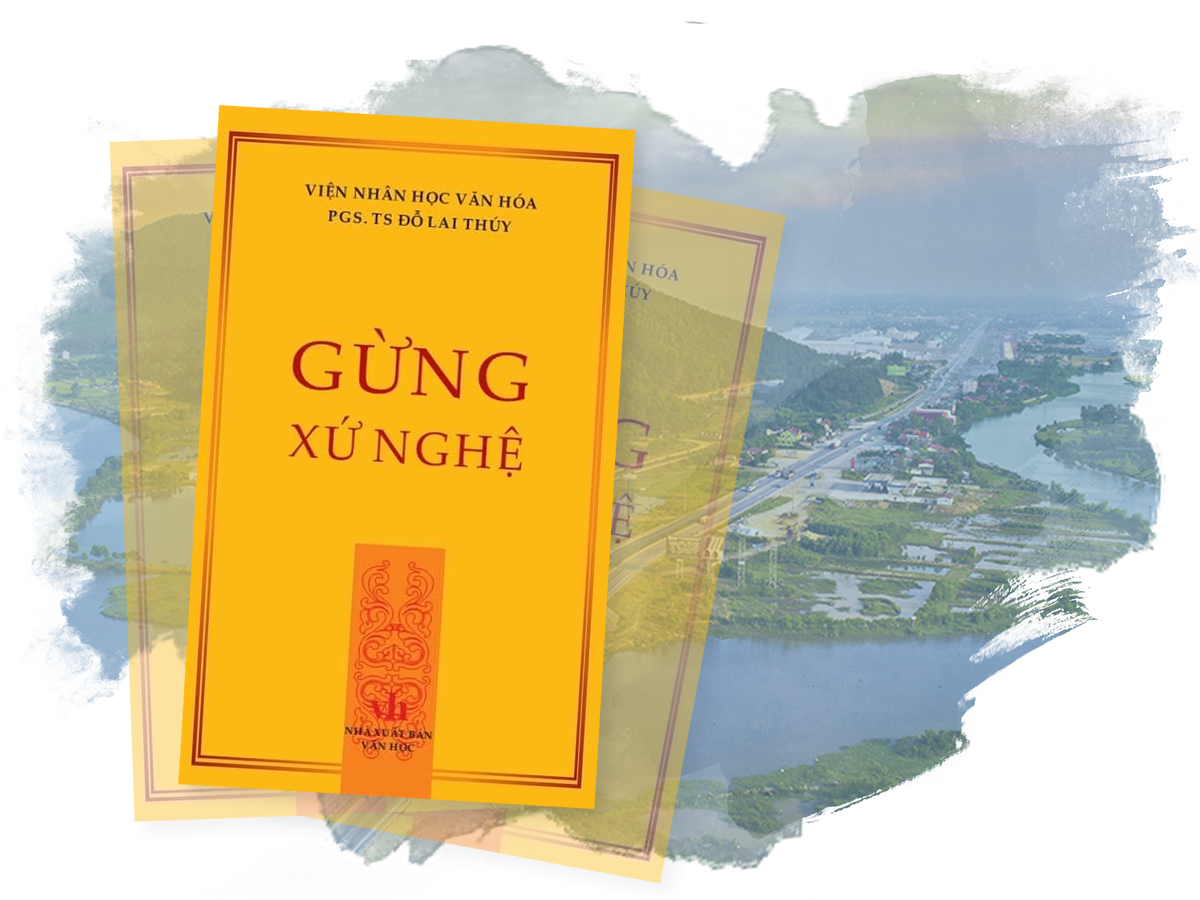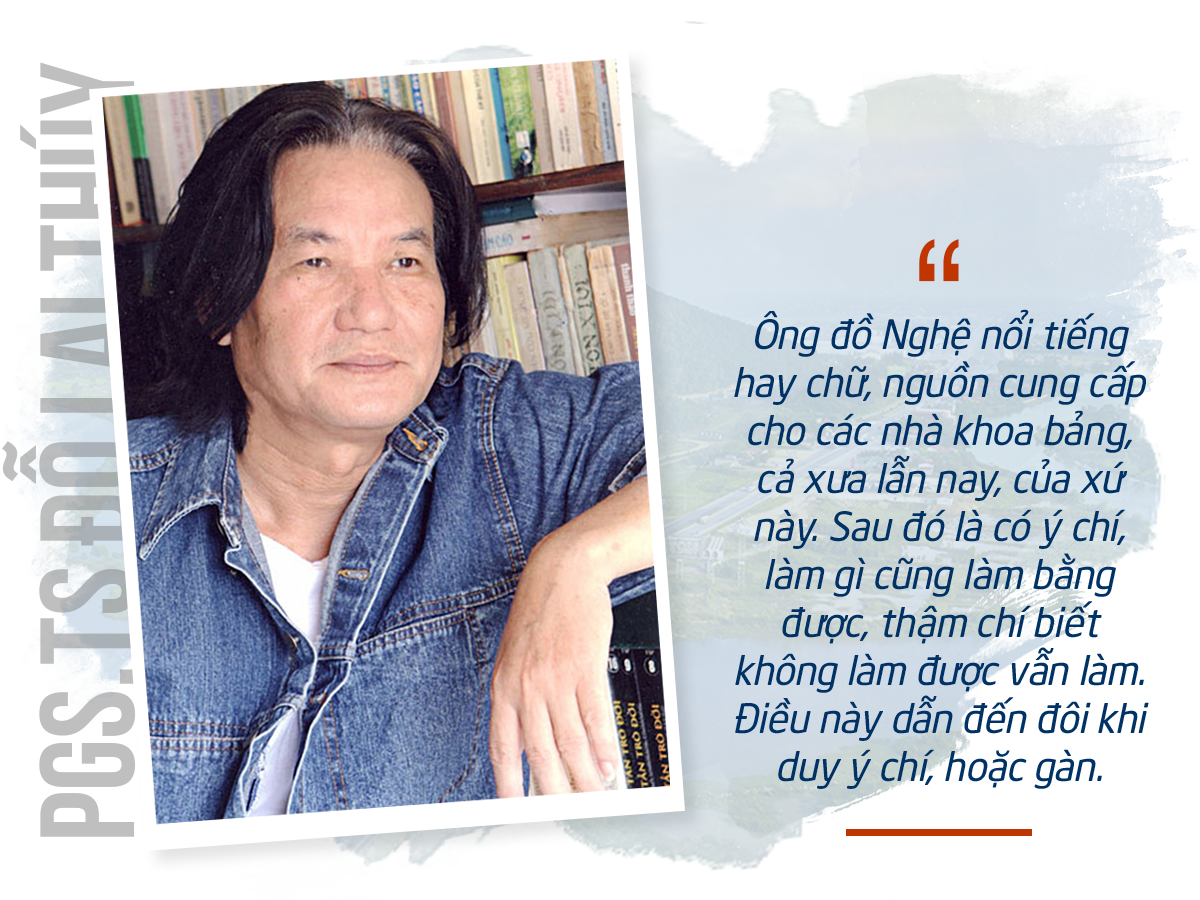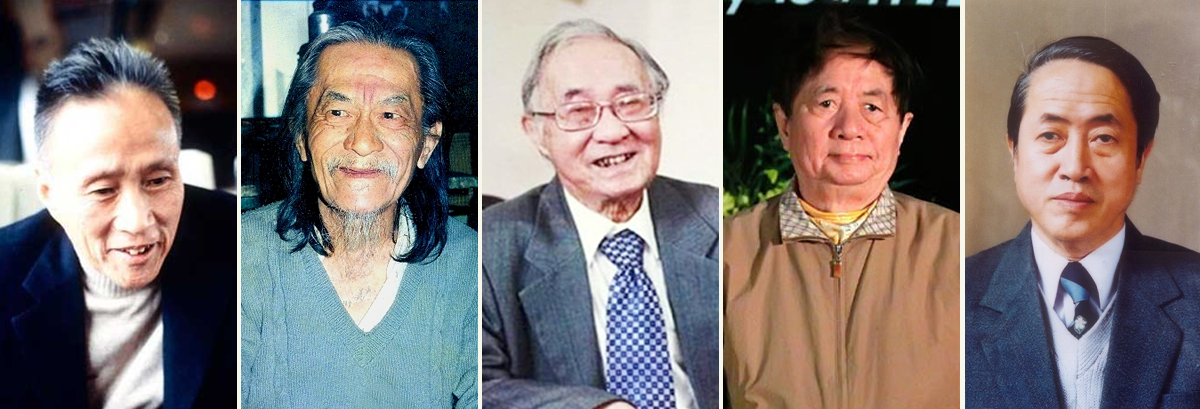
Last April, Associate Professor Dr. Do Lai Thuy released the book GINGER FROM NGHE AN PROVINCEWriting about 20 intellectual figures from Nghe An from the Middle Ages to the present/modern times with a unique approach, from psychoanalytic criticism to find their psychological-creative journey. We had a conversation with him about this book.

PV: Choosing the title “Nghe An Ginger” probably means that you compare the people of this land to be as “spicy” as ginger. Ginger is spicy but warm, not tearing the throat, guts, or livers, right? As far as I know, this is the first book you wrote about characters from a land, a cultural region, Nghe An, before your hometown Doai. What is the reason?
Associate Professor, Dr. Do Lai Thuy:The title of this book is also the title of this article."Ginger of Turmeric"My story is about Dr. Nguyen Khac Vien. He suggested me to the idea of “the older the ginger, the spicier it is”. And ginger in barren lands is spicier than ginger in soft lands. Like Nghe land for example. Moreover, it is a wordplay that is the forte of Nghe people. From that, I believe that there is a Nghe character related to the soil of this land. Nghe character is crystallized in people, especially in famous scholars. People are flowers of the land.
Actually, I did not intend to write a book about Nghe people. But on my journey of literary and cultural criticism, I saw someone with academic and personality problems, so I wrote about them. Then one day, looking back, I realized that most of the characters I wrote about were Nghe people. The idea of collecting and writing more into a book started from here. There are certainly many books written about Nghe people, but I think there has not been a detailed and dedicated book about Nghe people by a person outside of Nghe, not Nghe. Why? There could be too many reasons, but the reason is that in my previous life I was Nghe, so in this life I write to repay this ginger land.

PV:The characters in your books are all intellectuals from different periods of history. Each has their own uniqueness in terms of conduct, works, thoughts, personality and style. So have you looked for their common denominator? And if so, what is it?
Associate Professor, Dr. Do Lai Thuy:My characters are all intellectuals in the sense of “literate” people, that is, educated, trained from different sources of knowledge, such as Confucianism, Western learning, Marxist ideology… They are different in personality/character, behavior, and character. But they are all similar in the sentiment of the land. That is ginger, or more precisely, the quality of ginger, the nature of ginger. Ginger is hot, spicy, even “throat-tearing spicy”, but it is mild and has medicinal properties. The spiciness of ginger is fragrant, rich and lasting.Ginger is spicy, salt is salty, we have been/Green mountains and blue waters, please don't forget each other.
PV: Is there anything unique about Nghe intellectuals compared to intellectuals from other regions? What is it?
Associate Professor, Dr. Do Lai Thuy:The difference between Nghe and intellectuals in other regions is their love of learning. Along with the Northern, Southern, and Quang scholars, Nghe scholars are famous for their good writing, a source of supply for scholars, both past and present, in this land. Next, they have the will to do anything, even knowing they cannot do it, they still do it. This sometimes leads to willfulness, or stubbornness. Nghe intellectuals also have many initiatives, many innovations in their work. They want to change their status by becoming mandarins, or making revolution. However, compared to Quang scholars, Nghe scholars seem to be somewhat conservative. Maybe because there are too many mandarins, and there is no foreign trade port for the ocean water to wash away the bureaucracy?

PV:No one is exactly alike. But perhaps there are people who can have some similarities to form a certain type of person in terms of academics, ideology and personality?
Associate Professor, Dr. Do Lai Thuy:With the Nghe people that I had the opportunity to meet directly, even get close to, I found each of them to be different. I like Phan Ngoc for his stubbornness, when Phan insisted on Tang poets making the first final sentence. But perhaps that extremism made him have many flashes of brilliance. I love Thai Ba Van for his deep understanding of art and beautiful, very Western sentences, like his handsome appearance. Then the experience and debauchery of Tu Chi. The erudition and self-protectiveness of Ha Van Tan. The innocent determination of Hoang Ngoc Hien. The difference between poetry and people of Huy Can.
PV: Although it is still subjective, without clear criteria or reference system, I and many others think that Nguyen Cong Tru is the most "ginger" among the Nghe people. And you, who do you think is the most "ginger" Nghe person?
Associate Professor, Dr. Do Lai Thuy:The most “ginger” Nghe people, also the most “Nghe”, you and I both choose Nguyen Cong Tru. First of all, he lived in his hometown the longest. More than 40 years of experiencing the “cold Confucian style” was enough for him to be a “ginger old man”. His behavior was very unrestrained, unconventional and full of paradoxes. For example, to humiliate the nouveau riche who were always proud of their debauchery, Nguyen Cong Tru threw himself into debauchery, even more ferociously than them, but it was a debauchery with culture, philosophy and art. Only then was he qualified to criticize them. Moreover, Nguyen Cong Tru did what he liked, and he did it well. He lived a life, one could say, of contentment. That was the inspiration for his Nom poetry, especially his spoken singing. Other Nghe people like Nguyen Du were more or less mixed with the culture of Thang Long and Kinh Bac, so they were more profound and thoughtful. Or Tu Chi, who lived in Hue as a child and ate Hue/Muong food, so he behaved more flexibly to the point of becoming a "pretend master".

PV:Who was the first Nghe person you worked with? What impact did that person have on your work and career? What is your deepest memory of them?
Associate Professor, Dr. Do Lai Thuy:In 1981, I returned from the General Department of Technology to become a foreign language soldier. The first Nghe An person I met was Dr. Nguyen Khac Vien - Director and Editor-in-Chief of the Publishing House. I saw a frail old man sitting in a small room near the stairs. Mr. Dao Hung told me that was Mr. Vien! It was hot, no fan, no flies, no expression on his face, no books on the table, only a clattering typewriter. It was so different from my imagination. And, to satisfy my curiosity, I rushed into his room to talk and ask all sorts of questions. After that, I was often sent by Mr. Hung to work with him. To work on special issues forEtudes Vietnameseiennes, filmmakingTay Son martial arts land, went to introduce abdominal breathing and shuttlecock kicking. When I wrote the first article about Phan Ngoc published in Song Huong, he asked Mr. Hung, is that Thuy "our Thuy"? The bookThe eyes of poetryAfter finishing writing, he asked his younger brother Nguyen Khac Phi to print it for him, but it was unsuccessful. He read my thesis on Ho Xuan Huong and was delighted with the new discoveries, so he wrote an introduction in case it was printed. Seeing that I liked psychoanalytic criticism, he intended to send me to France to study psychoanalysis many times. I refused because I was only a critic and not a psychiatrist, although I regretted the opportunity to go to Europe. Doctor Vien left me with many good feelings, kindness, way of life and way of working.
PV:Who inspires you the most?
Associate Professor, Dr. Do Lai Thuy:If the person who puzzled me the most was Nguyen Khac Duong, Uncle Vien's younger brother, then the person who inspired me the most was Ho Xuan Huong. Nguyen Khac Duong was born into a devout Confucian family, participated in the resistance war, then suddenly abandoned Christianity. He went through different religious orders, then suddenly left the monastery to study Philosophy at the Sorbonne. When he returned to Vietnam, he taught Philosophy and Literature at the Catholic University of Dalat, and was very interested in psychoanalysis. I knew him when he hitchhiked with his brother from Hue to Da Nang. On the bus, Mr. Vien whispered that I was famous for being crazy, but my younger brother was even more crazy. When we reached Hai Van Pass, when everyone was resting, Uncle Duong stood pensively on a rock looking out to sea. Only later, when we became close, every time I went to Saigon, I was able to visit the nunnery in Binh Trieu, did I understand. As for reading Ho Xuan Huong, I was interested in the entanglements of biography, writing, and obscenity. Researching Ho Xuan Huong, I have made many discoveries about her thoughts, art, and approach. In more than a dozen books, "Ho Xuan Huong remembers fertilityStill the project I'm most excited about. Remember, I wrote it in just 3 months.

PV: Your Nghe people (in this book) are all successful and famous. And all of them are in foreign lands. Do you have your own explanation for this phenomenon?
Associate Professor, Doctor of Science.Do Lai Thuy:As you said, most of the successful Nghe people are outside of Nghe An. The more unique a cultural area is, the more localism it creates. Localism always has two sides, positive and negative. The difficulty is that depending on each specific case, they often transform into each other. When people leave their locality, they easily recognize the local limitations and overcome them. Nguyen Sang once said, if I did not go to Hanoi, I would only be a Southern painter.
PV:I see that the previous generations of Nghe An people, even though living in a foreign land, find it difficult to lose the ginger flavor of their homeland. How can you explain this in terms of culture?
Associate Professor, Doctor of Science.Do Lai Thuy:Nghe An people cannot completely get rid of their Nghe quality. It is their identity, their second instinct. Moreover, people should not lose their roots, but only improve them.

